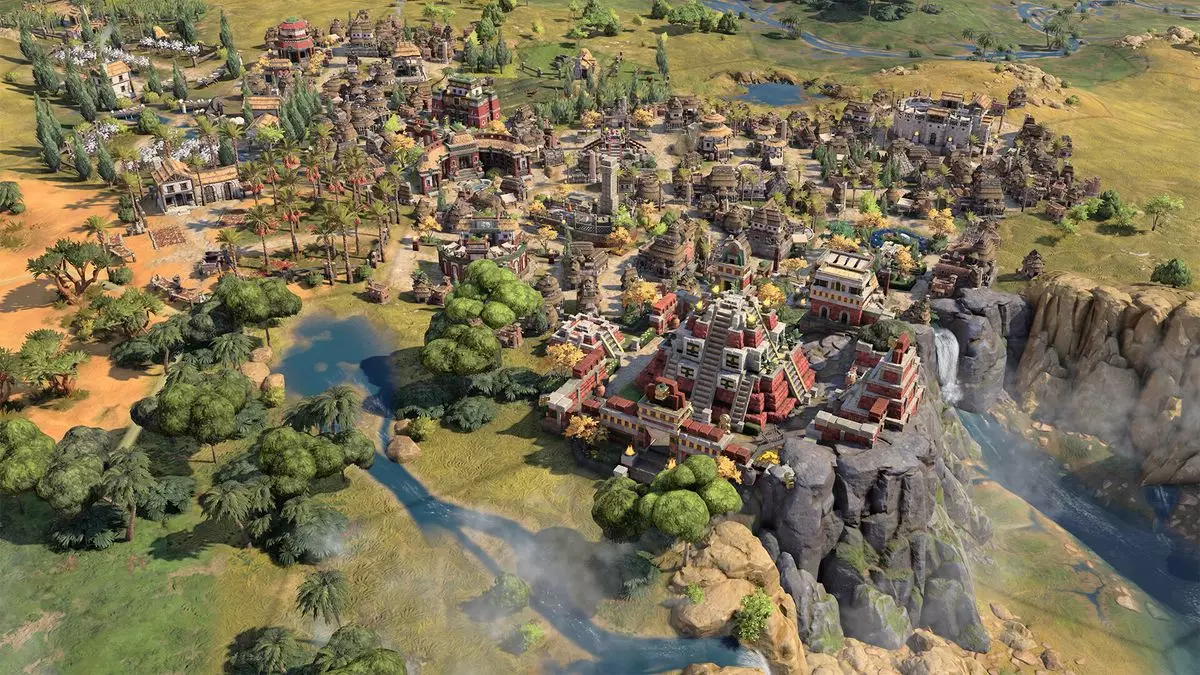The “Civilization” franchise has long been a staple in the strategy gaming community, celebrated for its intricate gameplay that brings the rise and fall of empires to life. With the upcoming release of “Civilization 7,” a fresh approach to the core mechanics is set to redefine how players interact with the game. At the heart of this transformation is a groundbreaking innovation known as the Ages system, poised to alter the way players strategize and evolve throughout their gameplay.
The Ages system introduces a triadic structure to each match, breaking gameplay into three significant phases. This design grants players the flexibility to shift their civilization and leaders at various junctures during the game. As executive producer Dennis Shirk articulates, this represents “one of the biggest changes” in the franchise’s history, challenging long-standing traditions that players have come to expect. The courage to innovate is evident, as Shirk refers to this endeavor as “a new puzzle to unlock,” signaling an exciting shift from the predictability associated with earlier titles.
One of the most intriguing aspects of the Ages system is how it nurtures a continual sense of discovery. Rather than letting the initial choice of civilization dictate player experience for the first hundred turns, the new system enables dynamic interactions that evolve with each Age. For instance, players will begin in a less advanced setting without ocean exploration capabilities but will gain these abilities as they progress. This transition fosters constant engagement and strategic adaptation as players respond to both their own evolving capabilities and the actions of opponents.
The introduction of the Ages system significantly enhances the strategic depth of “Civilization 7.” With the ability to switch civilizations and leaders in response to new circumstances, players can explore combinations that were previously unavailable. This not only intensifies individual gameplay but also enriches multiplayer experiences, as players will need to predict and react to their opponents’ transitions between Ages.
Shirk elaborates on the distinct advantages each leader presents through unique attribute trees. Such customization allows players to align their chosen leaders with their preferred tactics, whether they favor military conquest or cultural development. This personalized gameplay means that every match can yield entirely different outcomes based on the blend of civilizations and strategies employed. The possibilities are virtually limitless, granting seasoned players and newcomers alike the opportunity to tailor their experiences according to their interests.
While the excitement of a new mechanic is palpable, there is an underlying sentiment of apprehension regarding the departure from familiar gameplay. Creative director Ed Beach previously noted that the Ages system will likely pose a steep learning curve for long-time fans of the series. This reflects a broader concern in the gaming community: how much change can a franchise endure before it loses its essence? Striking a balance between innovation and the core aspects that defined previous entries is paramount to the success of “Civilization 7.”
The newly introduced Ages system could introduce a range of strategic permutations that may frustrate veterans accustomed to established conventions. However, this shake-up might also be what the series needs to remain relevant and engaging in a rapidly evolving gaming landscape. By reinvigorating how players experience victory and defeat, the developers signal a commitment to both honoring tradition and embracing change.
As we anticipate the launch on February 6, 2025, the community is abuzz with speculation about how the Ages system will play out in reality. Will it invigorate the series as intended, or will it alienate loyal fans? In an era where innovation is crucial for survival, “Civilization 7” may indeed represent a pivotal moment for the franchise, promising exciting new discoveries and strategies in its vast landscape while evoking a sense of nostalgia in its foundation.
Ultimately, the success of the Ages system rests in the hands of the players. Their ability to adapt, refine their strategies, and exploit opportunities will determine how this new chapter unfolds in the long legacy of “Civilization.” As the launch date draws near, anticipation mounts for a revolutionary strategy experience that may redefine gaming paradigms for years to come.


Leave a Reply